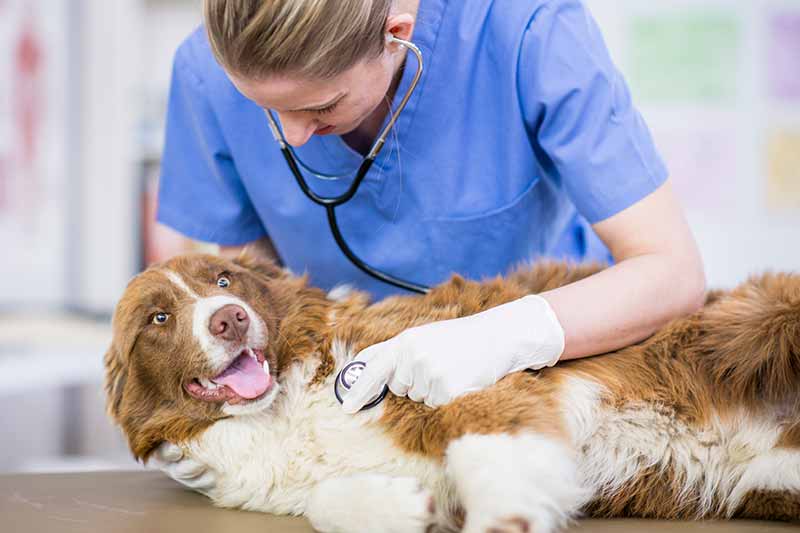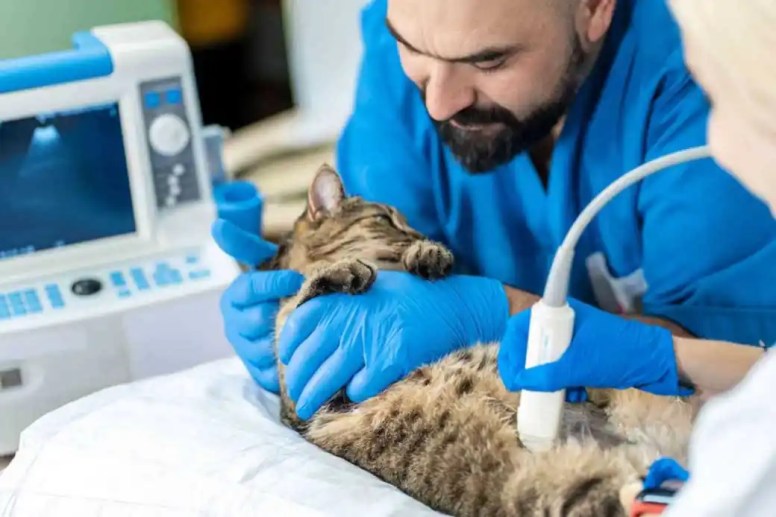When to Look for the Aid of an Emergency Vet for Sudden Health Problems
When to Look for the Aid of an Emergency Vet for Sudden Health Problems
Blog Article
Vaccination Guidelines From Your Trusted Veterinarian
Inoculation standards provided by your relied on vet play an important function in guarding your animal's health and well-being. Furthermore, addressing common misconceptions surrounding injections can further improve pet proprietors' self-confidence in these preventative steps.

Value of Vaccinations
Inoculations play a crucial role in guarding animals versus a variety of avoidable diseases. By stimulating the immune system to identify and combat particular virus, injections substantially minimize the incidence of infectious conditions that can affect an animal's health and wellness and longevity. Not just do inoculations shield private pets, but they also add to herd immunity, thus minimizing the overall frequency of conditions in the animal population.
Timely inoculations help to reduce the spread of illness such as rabies, parvovirus, and distemper, which can have extreme effects for both pets and people. Furthermore, inoculations are commonly a need for boarding centers, brushing solutions, and canine parks, making them vital for those that wish to mingle their family pets.

Core Injections for Animals
While the specific inoculation needs of family pets can differ based on private factors, core vaccines are widely advised to protect against the most usual and significant conditions (Pet Vaccinations). Core vaccinations are those considered necessary for all pet dogs, no matter their way of living or geographical location, as they safeguard versus highly transmittable and possibly deadly ailments
For pet dogs, the core vaccines include those for canine distemper, parvovirus, adenovirus (hepatitis), and rabies. Canine distemper is a viral disease that impacts the breathing, intestinal, and worried systems. Parvovirus is understood for causing extreme gastrointestinal health problem, especially in young puppies. Adenovirus can result in liver disease, while rabies is a zoonotic disease that positions a risk to both human beings and animals.
In pet cats, core vaccinations include feline panleukopenia, feline calicivirus, feline herpesvirus (rhinotracheitis), and rabies. Feline panleukopenia is a very transmittable viral condition that impacts the body immune system and intestinal tracts. Calicivirus and herpesvirus are significant factors to top respiratory system infections in felines, while rabies continues to be an essential concern for public health and wellness.
Seek advice from your vet to ensure your pets obtain their core inoculations on timetable.
Non-Core Vaccines Explained
Non-core vaccinations are tailored to deal with particular dangers related to a pet dog's exposure, atmosphere, and way of living to specific illness. Unlike core vaccines, which are widely advised for all animals, non-core vaccinations are considered based on individual scenarios. These injections are especially essential for pets that might run into distinct microorganisms due to their geographical area, travel routines, or tasks.
Examples of non-core injections include those for Bordetella bronchiseptica, which is linked to kennel cough, and Lyme condition, brought on by ticks. Pet dogs that frequently connect with other pets, navigate to this website such as those in boarding centers, pet dog parks, or brushing environments, might gain from Bordetella inoculation. Likewise, if you stay in a location where Lyme disease is prevalent, vaccinating against this disease can be a sensible option for outdoor-loving pet dogs.
Various other non-core vaccinations might include those for leptospirosis, canine influenza, and feline leukemia, depending upon the specific danger aspects existing. It is necessary to have an extensive discussion with your veterinarian regarding your pet's lifestyle and the possible need for these vaccinations, making sure a customized inoculation approach that finest secures your furry friend.
Vaccination Arrange Overview

As pets grow, it is necessary to stick to the recommended booster vaccinations. Pet Vaccinations. For grown-up pets, core vaccines are commonly offered every one to 3 years, depending upon the certain vaccine and local laws. Non-core injections might be suggested based upon way of life aspects and regional disease occurrence, requiring a customized approach
Regular veterinary check-ups are important for updating inoculation timetables. Your vet can give guidance on the most suitable immunizations for your family pet, factoring in age, health standing, and environmental risks. By staying proactive and informed, pet dog owners can ensure their furry friends get efficient and prompt inoculations, thus securing their health and wellness and health throughout their lives.
Typical Misconceptions About Injections
False impressions about pet dog vaccinations can lead to our website confusion and reluctance among animal proprietors regarding the booster shot procedure. One widespread myth is that vaccines are unnecessary for interior pet dogs. While it's real that interior family pets deal with lower dangers, they are not totally unsusceptible to conditions, as microorganisms can be introduced with different methods, consisting of human clothes and various other animals.
One more false impression is that vaccinations can create the illness they intend to stop. In truth, most vaccines include inactivated or attenuated pathogens, which can not cause disease in healthy and balanced animals. Some family pet proprietors likewise think that their family pets should not be immunized if they are already healthy and balanced; nevertheless, inoculations are an aggressive measure that helps avoid the beginning of disease.
Additionally, numerous pet dog proprietors fear that vaccinations will certainly result in long-lasting health problems. While side results can take place, they are normally moderate and short-lived. The benefits you can try these out of inoculation-- shielding animals from potentially life-threatening illness-- far surpass the dangers. Comprehending these typical misconceptions is important for liable pet dog possession and ensuring the health and wellness of your hairy friends. Constantly consult your veterinarian for exact details tailored to your pet dog's certain needs.
Final Thought
In recap, adherence to vaccination guidelines is essential for ensuring the health and wellness and long life of pets. Core vaccinations provide vital protection versus major conditions, while non-core injections resolve particular dangers based upon specific lifestyles. Establishing a comprehensive inoculation schedule, in combination with regular veterinary exams, promotes optimal wellness administration. Dispelling typical myths surrounding vaccinations better enhances the value of notified decision-making in pet dog care. Inevitably, a positive approach to inoculations is important for preserving animal well-being.
Not just do vaccinations safeguard private pets, however they additionally contribute to herd immunity, thus minimizing the general frequency of diseases in the family pet populace.
Misunderstandings concerning pet dog inoculations can lead to complication and unwillingness among pet dog proprietors relating to the booster shot process. While it's true that interior animals face reduced threats, they are not totally immune to diseases, as virus can be presented with various means, including human clothes and various other pet dogs.
Some pet proprietors also believe that their pet dogs should not be immunized if they are already healthy; nonetheless, vaccinations are a proactive action that assists avoid the beginning of disease.
The benefits of inoculation-- securing animals from possibly life-threatening illness-- far surpass the threats.
Report this page